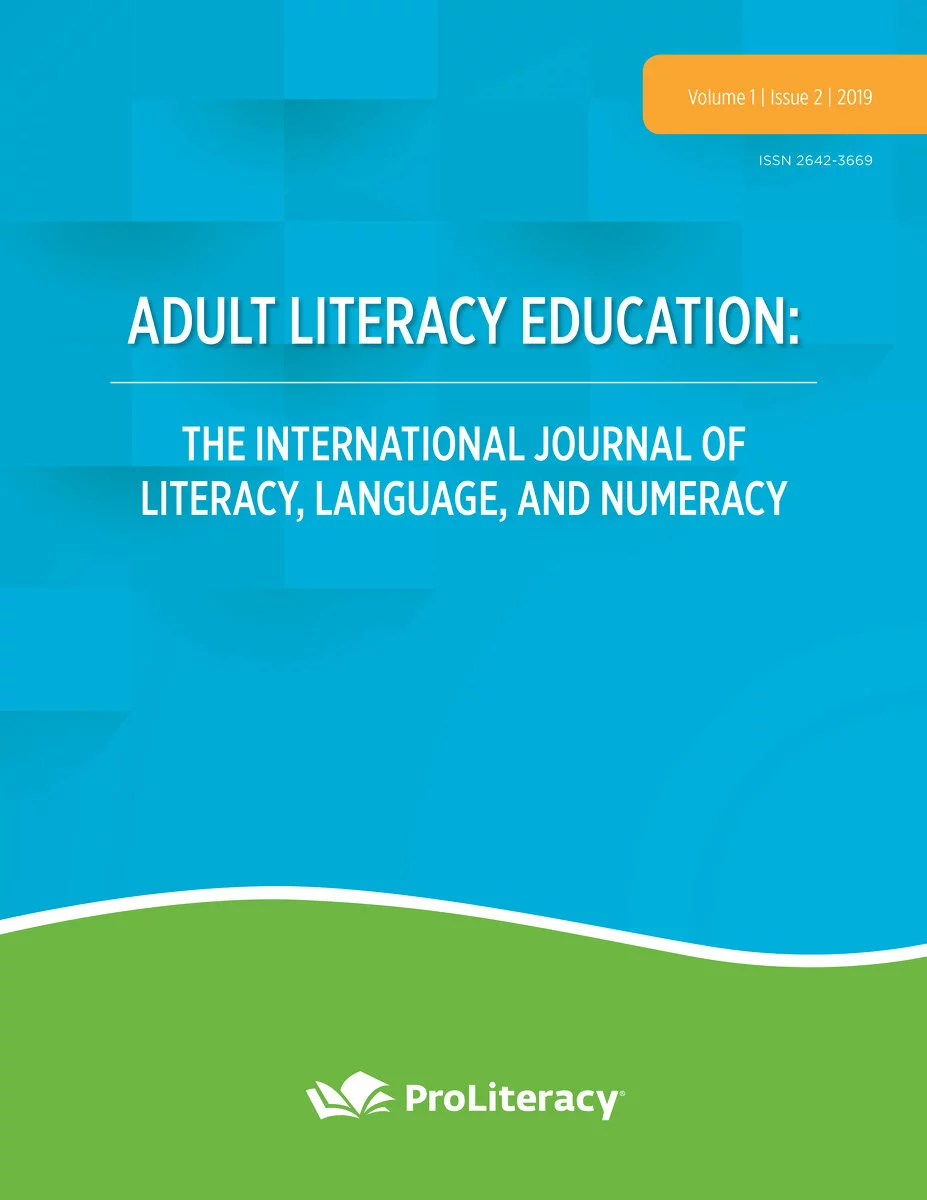Journal
The journal discusses the challenges faced by individuals with low literacy skills in accessing and understanding health insurance information. It emphasizes the importance of clear communication in face-to-face conversations and recommends using everyday terminology. The transformative perspective of adult literacy is highlighted, emphasizing the value of learners’ experiences and cultural backgrounds.
The article also explores the complexity factor in tasks and the need for numeracy skills in real-life situations. It addresses the concept of whiteness and the importance of acknowledging racial identity. The journal concludes by discussing trends and future directions in adult education.
This issue of the journal includes:
Research Articles
Author(s): Iris Feinberg, Daphne Greenberg, Elizabeth L. Tighe, Michelle Mavreles Ogrodnick – Georgia State University
Description: the article emphasizes the importance of addressing health insurance literacy among low-wage earners and highlights the need for interventions and support to improve their understanding and utilization of health insurance.
Author(s): Karen Magro – The University of Winnipeg
Description: The article emphasizes the transformative potential of transcultural literacy learning, which opens new possibilities for understanding the dynamics of literacy and promotes personal transformation and openness to new perspectives.
Author(s): Donna Curry – Center for Adult Numeracy, TERC
Description: The article encourages teachers to deepen their understanding of the PIAAC numeracy framework and apply its principles to create tasks and activities that meet the diverse needs of adult learners.
Forum: Reflections on White Racial Identity in the ABE Classroom
Author(s): Stephen D. Brookfield – University of St. Thomas
Description: The article discusses the importance of white instructors in multiracial adult basic education (ABE) classrooms exploring their own whiteness, and it addresses the notion that racial identity is a cultural construct rather than a biological one.
Author(s): Edith Gnanadass – University of Memphis
Description: The article critiques Stephen Brookfield’s concept of white racial identity and calls for a broader intersectional analysis that considers race, social class, gender, nationality, and citizenship.
- Response to Stephen D. Brookfield’s Why White Instructors Should Explore Their White Racial Identity
Author(s): Shantih E. Clemans – SUNY Empire State College
Description: The article is a response to Stephen D. Brookfield’s argument that white instructors should explore their white racial identity. Clemans highlights the importance of ongoing professional development and creating workshops and activities that facilitate reflection and dialogue on privilege, power, and identity.
Author(s): Stephen D. Brookfield – University of St. Thomas
Description: The article by Stephen D. Brookfield discusses the importance of addressing whiteness and racial identity in predominantly white institutions, emphasizing the need for intersectional conversations and challenging white supremacy.
Resource Reviews
Author(s): Cristine Smith – University of Massachusetts
Description: The article reviews the book “Foundations of Adult and Continuing Education,” which provides a comprehensive overview of the field, including philosophy, history, psychology, policy, and specific contexts in the United States. It is recommended for graduate courses in adult education.
Author(s): Johan E. Uvin – Institute for Educational Leadership
Description: The review evaluates the usefulness of the resources in the archive and acknowledges the value they bring to practitioners, policymakers, researchers, and other stakeholders in the field of work-related basic skills.
Research Digest
Author(s): Dominique T. Chlup – Inspiring the Creative Within®, LLC
Description: This article discusses the importance of cultivating creativity in adult literacy education and suggests strategies, such as question-based brainstorming, arts integration, and promoting divergent thinking, for fostering creativity.
Technology Solutions for Adult Basic Skills Challenges
Author(s): David J. Rosen – Newsome Associates
Description: The article discusses the challenges and solutions for developing blended learning programs in adult basic skills education. It emphasizes the importance of program planning and provides resources for implementing blended learning effectively.
